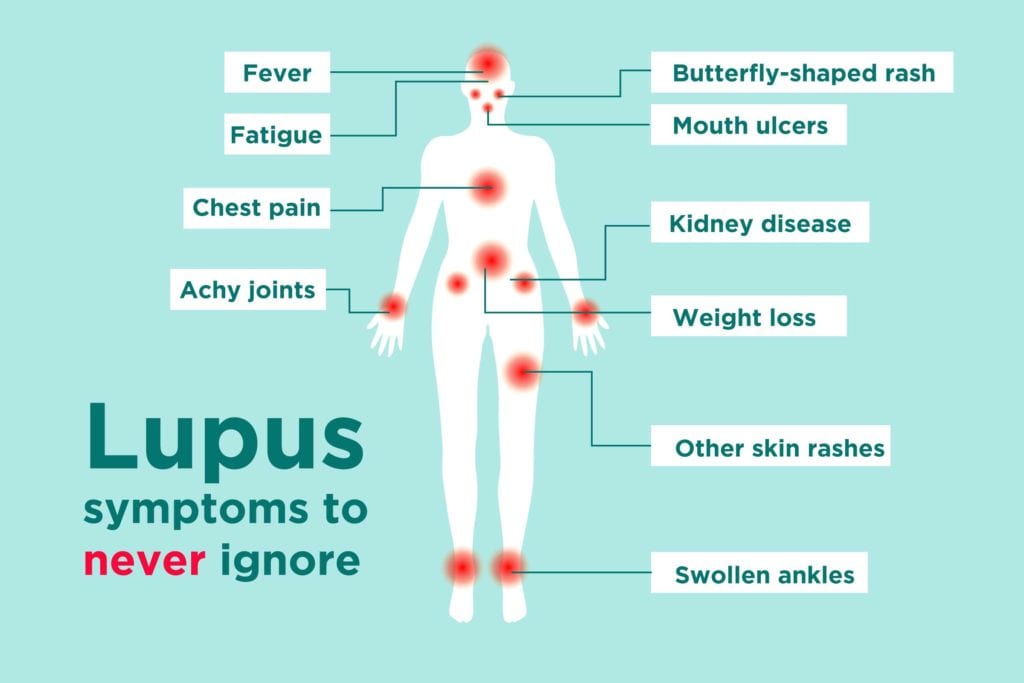Understanding Systemic Lupus Erythematosus (SLE)
Published on: December 4, 2024 | Author: Dr. Rashedul Hasan Rashed
What is Systemic Lupus Erythematosus?
Systemic Lupus Erythematosus (SLE) is a chronic autoimmune disease that can affect various parts of the body, including the skin, joints, kidneys, and heart. In this condition, the immune system mistakenly attacks healthy tissues, leading to inflammation and damage.
Symptoms of SLE
The symptoms of SLE can vary widely among individuals but may include:
- Fatigue
- Joint pain and swelling
- Skin rashes, particularly a butterfly-shaped rash on the face
- Fever
- Hair loss
- Kidney problems
Symptom Comparison Table
| Symptom | Common in SLE | Common in Other Conditions |
|---|---|---|
| Fatigue | Yes | Yes |
| Butterfly Rash | Yes | No |
| Joint Pain | Yes | Yes |

Causes and Risk Factors
The exact cause of SLE is unknown, but several factors may contribute, including:
- Genetic predisposition
- Hormonal factors
- Environmental triggers, such as infections or sunlight

Diagnosis of SLE
Diagnosing SLE can be challenging due to its varied symptoms. Physicians may use:
- Blood tests to check for specific antibodies
- Urinalysis to assess kidney function
- Physical examination and medical history
Treatment Options
Although there is no cure for SLE, various treatments can help manage symptoms and reduce inflammation. Options may include:
- Nonsteroidal anti-inflammatory drugs (NSAIDs)
- Corticosteroids
- Immunosuppressive medications
- Lifestyle changes, such as sun protection and a healthy diet
Living with SLE
Managing SLE requires ongoing care and lifestyle adjustments. Support groups and counseling can also be beneficial for emotional well-being.
Frequently Asked Questions (FAQs)
1. Can SLE be cured?
Currently, there is no cure for SLE, but treatments can help manage symptoms and improve quality of life.
2. What lifestyle changes can help manage SLE?
Regular exercise, a healthy diet, and stress management can contribute to better health outcomes.
3. How is SLE different from other types of lupus?
SLE is the most common type of lupus and can affect multiple organ systems, whereas other types may affect only the skin or joints.
Resources for Further Reading
Patient Stories
Sarah's Journey with SLE
Sarah was diagnosed with SLE at the age of 28. Despite the challenges, she has found ways to manage her condition and maintain a positive outlook on life.
Michael's Experience with Lupus
Michael, a father of two, shares his story of navigating the ups and downs of living with SLE and the importance of a strong support system.
Latest News and Updates
New Lupus Treatment Approved by FDA
The FDA has recently approved a new medication for the treatment of SLE, offering hope for improved management of the condition.
Lupus Awareness Month Highlights
May is Lupus Awareness Month, and various organizations are hosting events and campaigns to raise awareness about the disease.

Post a Comment